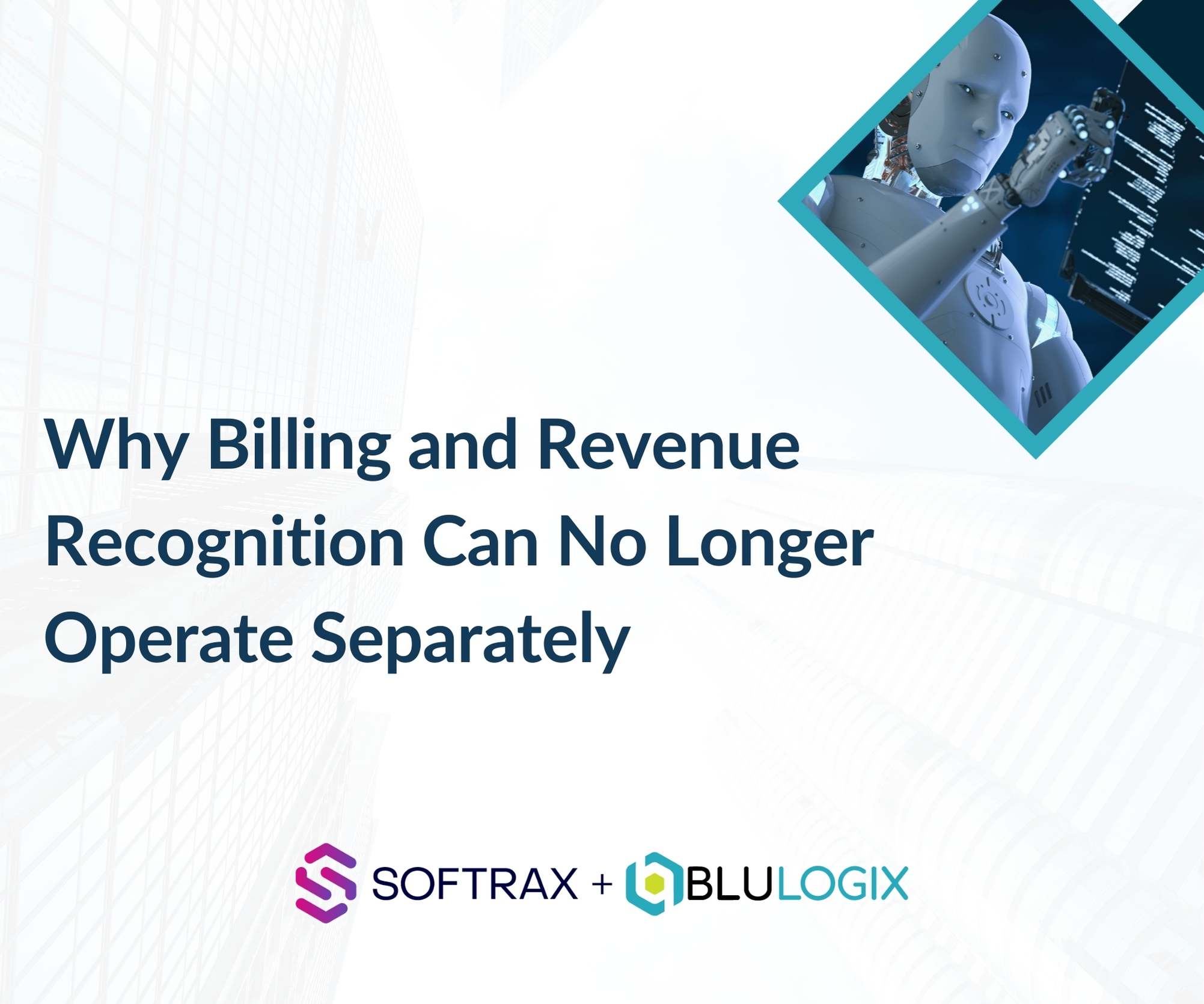See why growth companies choose BluIQ
The Ultimate in Flexibility and Scalability for Subscription Management and Billing.

BluIQ is a configurable platform that bridges the gaps between your CRM, ERP and related business processes.

Customize Your Monetization Platform Quickly and Cost-Effectively.

The Ultimate Flexibility and Scalability to Process Complex Data Staging & Mediation Scenarios with Ease

End-to-end Integration for Seamless Order Activation and Provisioning

BluLogix Chargeback & Cost Recovery for Public Sector and Enterprise Organizations

BluIQ gives you reporting, intelligence and insights in one package.

Empowering Ecommerce, Self-Management, and Seamless Renewals with Channel Support


Lessons, observations and insights for the subscription business

How BluIQ helps our customers’ subscription businesses successfully grow

The latest news and analyst reports on the Software-as-a-Service and Subscription industry

Attend an event near you to connect, learn, and gain inspiration.

The best companies in the world trust BluLogix for all of their billing needs

A collection of recorded webinars and videos on Software-as-a-Service and Subscription Management

Details on BluIQ subscription management and billing platform specifications

Subscription and Software-as-a-Service guides with actionable insights

Why Top Companies Choose BluLogix
In the subscription economy, customer expectations are evolving, and Managed Service Providers (MSPs) must adapt to meet these dynamic demands. One of the critical aspects of thriving in this environment is having a flexible pricing engine that can accommodate diverse pricing models and deliver value to both customers and the business. A flexible pricing engine is a key tool for MSPs to manage various pricing approaches, including hybrid and tiered models, while ensuring pricing accuracy through automation.
In this blog post, we will explore the role of a flexible pricing engine in the subscription economy, the benefits of supporting hybrid and tiered pricing models, and how automation enhances pricing accuracy and efficiency.
The subscription economy is characterized by recurring revenue models, where customers pay for ongoing access to services rather than making one-time purchases. In this environment, flexibility is crucial—not only for customers but also for MSPs trying to cater to different needs and preferences.
A flexible pricing engine allows MSPs to offer a wide range of pricing options, enabling them to tailor their services to the unique requirements of each customer. Whether customers prefer flat-rate pricing, usage-based billing, tiered plans, or a hybrid of these, a flexible pricing engine can manage all these variations seamlessly. This ability to adapt is crucial for maintaining a competitive edge, as customers increasingly demand pricing options that reflect the value they receive from the services provided.
Different customers have different needs, and a one-size-fits-all pricing model rarely works for all. This is where a flexible pricing engine comes into play, enabling MSPs to offer diverse pricing models that align with customer expectations. Let’s explore two popular pricing models—hybrid and tiered—and how a flexible pricing engine can support them:
A hybrid pricing model combines elements of different billing approaches, such as a base subscription fee plus usage-based charges. This model allows customers to benefit from a predictable baseline cost while only paying extra for the additional services they use. A flexible pricing engine makes it possible to manage hybrid pricing with ease, calculating both the fixed and variable components accurately and ensuring that customers are billed appropriately based on their usage.
Hybrid pricing is particularly beneficial for customers who need flexibility. For example, businesses that require baseline support but have fluctuating needs for additional resources can take advantage of hybrid models to manage their costs effectively. A flexible pricing engine helps MSPs manage these complexities, offering a consistent and transparent billing experience.
Tiered pricing involves offering different packages or levels of service at different price points, allowing customers to choose the plan that best suits their needs. This model is particularly effective for MSPs that offer a range of services with varying levels of value. For instance, an MSP might offer a basic package for startups, a mid-tier package for growing businesses, and a premium package for large enterprises.
A flexible pricing engine enables MSPs to create and manage these different tiers, apply appropriate discounts, and adjust the packages based on customer feedback. It also provides the flexibility to offer add-ons or bundles, further enhancing the customer experience. Tiered pricing models make it easier for customers to find a plan that meets their specific needs while providing MSPs with the ability to upsell as customers grow.
Pricing accuracy is critical for maintaining customer trust and ensuring profitability. Manual pricing calculations can be prone to human errors, leading to incorrect billing and potential disputes with customers. This is where automation comes into play.
A flexible pricing engine with automation capabilities ensures that all pricing calculations are accurate and consistent. Automated systems remove the risk of human error by applying predefined pricing rules and calculations across all transactions. Whether it’s calculating usage-based charges, applying discounts, or generating invoices, automation ensures that every aspect of pricing is handled accurately and efficiently.
Automation also reduces the administrative burden on MSPs. Instead of manually calculating charges or adjusting pricing tiers, automated systems handle these tasks, allowing staff to focus on more strategic initiatives. Automated pricing engines can also generate invoices in real-time, reducing delays and improving cash flow for the business.
Another advantage of automation is the ability to make real-time pricing adjustments. As customer needs change or new services are introduced, MSPs can quickly update pricing rules and ensure that these changes are reflected immediately. This level of agility is crucial in a subscription economy where customer demands are constantly evolving.
Conclusion
A flexible pricing engine is a vital component for Managed Service Providers looking to succeed in the subscription economy. By supporting diverse pricing models—such as hybrid and tiered approaches—and leveraging automation to ensure pricing accuracy, MSPs can provide value to their customers while optimizing their own operations. Flexibility, transparency, and efficiency are key to building strong customer relationships and driving long-term growth.
As customer expectations continue to evolve, MSPs must be ready to adapt. A flexible pricing engine provides the tools needed to meet these demands and position the business for future success. In our next post, we will explore how MSPs can leverage customer feedback to refine their service offerings and enhance customer satisfaction.



| Cookie | Duration | Description |
|---|---|---|
| cookielawinfo-checbox-analytics | 11 months | This cookie is set by GDPR Cookie Consent plugin. The cookie is used to store the user consent for the cookies in the category "Analytics". |
| cookielawinfo-checbox-functional | 11 months | The cookie is set by GDPR cookie consent to record the user consent for the cookies in the category "Functional". |
| cookielawinfo-checbox-others | 11 months | This cookie is set by GDPR Cookie Consent plugin. The cookie is used to store the user consent for the cookies in the category "Other. |
| cookielawinfo-checkbox-necessary | 11 months | This cookie is set by GDPR Cookie Consent plugin. The cookies is used to store the user consent for the cookies in the category "Necessary". |
| cookielawinfo-checkbox-performance | 11 months | This cookie is set by GDPR Cookie Consent plugin. The cookie is used to store the user consent for the cookies in the category "Performance". |
| viewed_cookie_policy | 11 months | The cookie is set by the GDPR Cookie Consent plugin and is used to store whether or not user has consented to the use of cookies. It does not store any personal data. |
The Ultimate in Flexibility and Scalability for Subscription Management and Billing.
